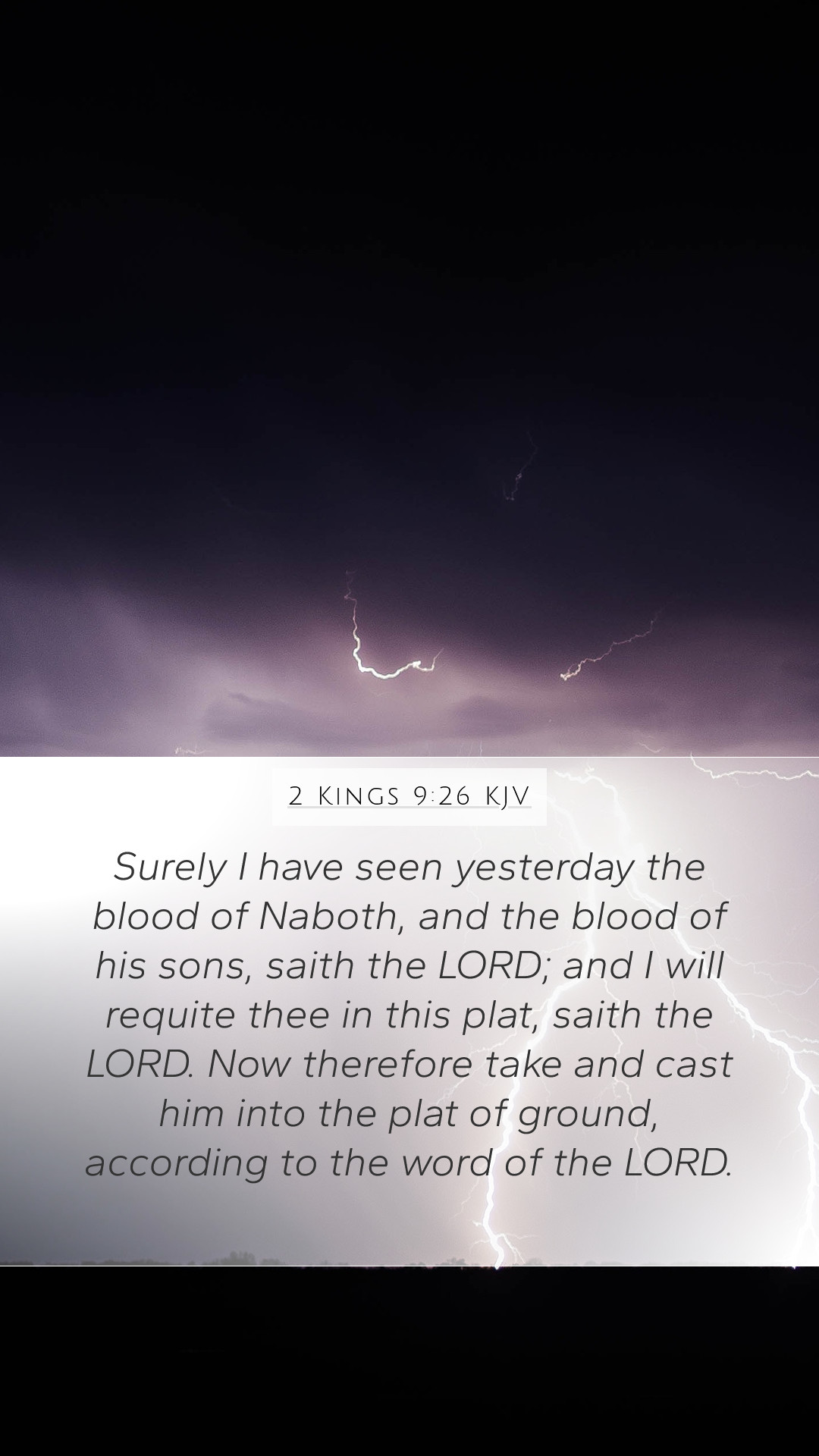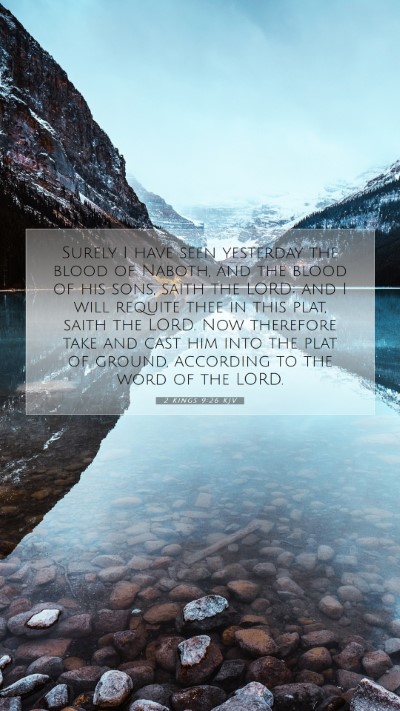Understanding 2 Kings 9:26 - Bible Verse Explanation
2 Kings 9:26 states: “Surely I have seen yesterday the blood of Naboth, and the blood of his sons, saith the LORD; and I will requite thee in this plat, saith the LORD. Now therefore take and cast him out of the plat, as a rotten thing.”
Overview of the Verse
This verse captures a crucial moment in Israel's history when God pronounces judgment on Jezebel for the wrongful death of Naboth and his sons. Understanding this scripture requires an exploration of its context, inherent themes of justice and retribution, and its implications for both the ancient Israelites and modern readers.
Historical Context
To thoroughly appreciate the meaning of this verse, it is essential to acknowledge the background of Naboth’s vineyard (1 Kings 21). King Ahab desired this vineyard, and in collusion with Queen Jezebel, he orchestrated Naboth's unjust death to acquire it.
Biblical Exegesis and Commentary Insights
-
Matthew Henry's Commentary:
Henry emphasizes God's omniscience, affirming that God witnesses all injustices. The verse illustrates not only the severity of Naboth’s murder but also God’s impending judgment on Jezebel, reinforcing the principle that God avenges wrongs against the innocent.
-
Albert Barnes' Notes:
Barnes explains that the “blood of Naboth” signifies both Naboth and his sons. The Lord’s declaration of requital indicates divine retribution, a common theme where God addresses wrongdoers. God's use of the term "plat" signifies ownership and judgment which will take place on the very ground they unjustly ruled over Naboth.
-
Adam Clarke's Commentary:
Clarke highlights the symbolic significance of blood in the scripture, representing life and injustice. He notes the gravity of the act committed by Jezebel, stressing that her punishment would be as public and disgraceful as the sin itself, illustrating the principle of divine justice in earthly matters.
Thematic Analysis
-
Justice and Retribution:
The verse underscores the biblical theme of justice, where God ensures that evil deeds will be punished. It serves a reminder that one’s actions, especially against the innocent, carry profound consequences.
-
Divine Awareness:
This scripture bolsters the understanding that God is attentive to human affairs and injustices do not escape His notice. The phrase “Surely I have seen” reflects God’s active involvement in worldly matters.
-
Moral Accountability:
The judgment on Jezebel illustrates that leaders are held to higher moral standards. This serves as a cautionary tale for those in power, stressing that authority comes with the responsibility to act justly.
Application for Today
For contemporary readers, the implications of this verse extend beyond the historical narrative. It can compel individuals and communities to reflect on their integrity and justice towards others, advocating for accountability, especially in leadership roles. Additionally, this scripture equips Bible study groups and individuals with a profound understanding of divine justice that can guide ethical decisions in daily life.
Additional Bible References
- 1 Kings 21:13-16: The account of Naboth's unjust execution.
- 2 Kings 9:7: The judgment pronounced against the house of Ahab.
- Isaiah 61:8: God emphasizing justice and righteousness.
- Revelation 16:6: The theme of justice in the context of divine recompense.
- Jeremiah 22:17: The focus on justice in leadership.
Conclusion
In conclusion, 2 Kings 9:26 serves as a pivotal reminder of God's justice and the inevitable consequences of sin. By understanding this verse through comprehensive Biblical exegesis and commentary, one can derive valuable insights for personal reflection and ethical living. Engaging with such scriptures enhances Bible study insights and enriches one's understanding of God’s nature and expectations.


